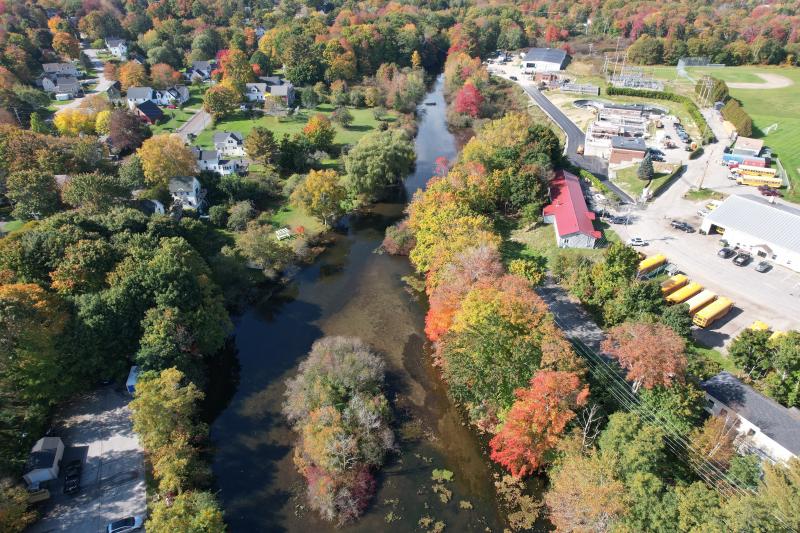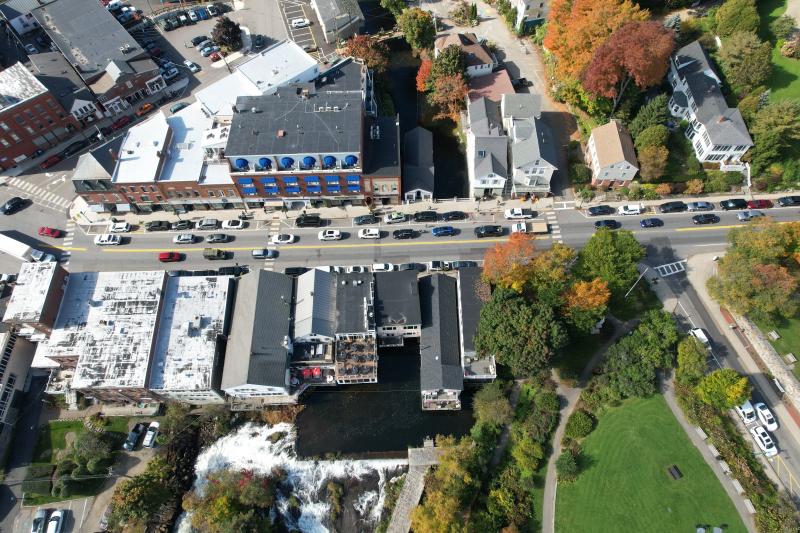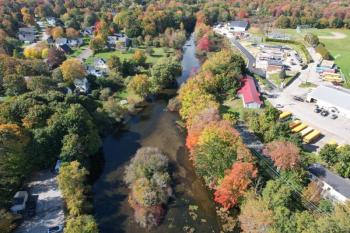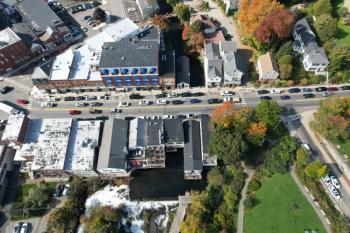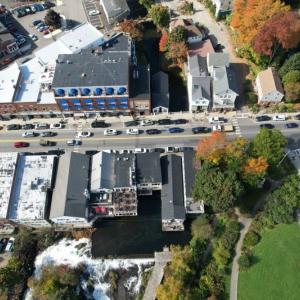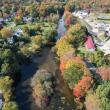Camden receives $1.6 million matching grant for Megunticook River Project
Camden is among eight recipients of National Fish and Wildlife Foundation and the National Oceanic and Atmospheric Administration grants for natural infrastructure projects. Camden’s grant amount, for the “Megunticook River Watershed Fish Passage and Flood Prevention Final Designs and Permitting,” is $1.6 million with a matching fund of $260,000.
The Camden, project, as stated by NFWF, is to: “Develop final designs and engineering plans for full or partial removal of four dams and fish passage construction at two additional sites where dam removal is not feasible. Project will, once constructed, improve flood resiliency and habitat connectivity for sea run and resident fish including brook trout, American eel, Atlantic salmon, and rainbow smelt.”
The grants derive from the Bipartisan Infrastructure Law and are to support ongoing natural infrastructure projects in seven states, according to NFWF.
In November 2021, President Biden signed the Infrastructure Investment and Jobs Act. The Bipartisan Infrastructure Law is the largest long-term investment in infrastructure and economy in the nation’s history, according to the Federal Highway Administration.
It provides $550 billion over fiscal years 2022 through 2026 in new federal investment in infrastructure, including in roads, bridges, and mass transit, water infrastructure, resilience, and broadband.
The NFWF grants are to support the design and implementation of projects to enhance the resilience of coastal communities and improve habitat for fish and wildlife in Hawaii, Maine, New Jersey, Ohio, Rhode Island, South Carolina and Virginia. The eight grants announced Aug. 29 are to leverage more than $3 million in matching contributions for a total conservation impact of $11.1 million.
The grants were awarded through the National Coastal Resilience Fund (NCRF), a partnership between NFWF, NOAA, Shell, TransRe, and Occidental, with additional funding from the U.S. Department of Defense, the Bezos Earth Fund, and also using funding from the Bipartisan Infrastructure Law.
NFWF worked to award an early slate of grants in August, ahead of its standard annual award date, so that communities experiencing increasing impacts from rising seas, more intense storms, and other coastal hazards would have funding to spend towards resilience projects. In 2022, NFWF anticipates investing approximately $140 million in grants through the NCRF once additional awards are announced in November.
The projects supported by the eight grants announced are restore and enhance a diverse range of coastal habitats—including wetlands, dunes and tidal rivers—that are vital to the survival of many fish and wildlife species and provide natural buffers for communities against storms and other coastal hazards. These awards build on previously funded NCRF projects and will support efforts of the grantees to finalize project designs and implement important nature-based coastal resilience projects across the country.
NFWF, in partnership with NOAA and joined initially by Shell and TransRe, launched the NCRF in 2018 to support on-the-ground projects to engage communities and reduce their vulnerability to growing risks from coastal storms, sea-level rise, flooding, erosion and extreme weather through strengthening natural ecosystems that also benefit fish and wildlife.
A list of the 2022 National Coastal Resilience Fund early-slated grants is available here.
About the National Fish and Wildlife Foundation
Chartered by Congress in 1984, the National Fish and Wildlife Foundation (NFWF) protects and restores the nation’s fish, wildlife, plants and habitats. Working with federal, corporate, foundation and individual partners, NFWF has funded more than 6,000 organizations and generated a total conservation impact of $7.4 billion. Learn more at www.nfwf.org.
About NOAA
Climate, weather, and water affect all life on our ocean planet. NOAA’s mission is to understand and predict our changing environment, from the deep sea to outer space, and to manage and conserve America’s coastal and marine resources. See how NOAA science, services, and stewardship benefit your community: Visit noaa.gov for our latest news and features, and join us on social media.

